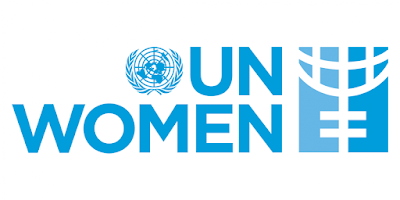UN Deputy Secretary-General warns against Shifting Resources from Gender-Equality Initiatives at the virtual conference for "Transformative approaches: State support to promote women’s participation in peacebuilding" giving 10 key points
UN Deputy Secretary-General Amina J. Mohammed provided his remarks, at the virtual ministerial round table conference on “Transformative approaches: State support to promote women’s participation in peacebuilding”, in New York on 27th May, 2020 along with Government of Sweden and the International Peace Institute.
He said that 2020 was set to be a milestone year for gender equality and the empowerment of women and to commemorate and reflect critically on progress made in the 20 years, however the world's attention has shifted to fighting the COVID-19 pandemic which has given shape to inequalities in all forms in which the pandemic is affecting individuals and communities — and hampering the capacity for effective recovery.
With the topic of gender equality, the crisis is threatening the gain that have been made in recently. Women constitute more than 70 per cent of health workers globally and bear the weight of unpaid care work at home. The increasing number of women’s involved in informal and insecure work has left many vulnerable to exclusion from formal social protection measures. Emergency measures adopted during the Coronavirus lockdown like movement restrictions, confinement and the shifting resources to fight COVID-19, is affecting women disproportionately. There have been rising cases of gender-based violence and restricted access to sexual and reproductive health services.
He warned that, "The urgent need for action is often obscuring issues of inclusivity. The complexity of these challenges is heightened in conflict and fragile settings where displaced, rural, refugee, poor or otherwise marginalised women face compounding difficulties, including lack of access to information, services and critical technologies. In these situations, shifting resources from gender-equality initiatives can have harmful intergenerational consequences."
He highlighted 10 key points to show what actions States take to support women’s participation.
1) States must continue to prioritise implementing the women, peace and security agenda. The current health crisis should not deviate us from these goals.
2) States should maintain support for the Secretary-General’s call for a global ceasefire of which one the main aims are prevention and sustainable peace. More than 110 Governments, regional organisations, religious leaders, civil society and armed groups have accepted the call. However, conflicts are still occurring In Afghanistan, Syria in other parts of the world. Continued high-profile promotion, and engagement with conflict parties wherever feasible is essential
3)States must include women in decision-making at all levels and deploy women to support global peacemaking efforts. States must work in partnership through multilateral institutions like the United Nations.
4) States must continually ask: “Where are the women?” As we are seeing in the COVID-19 response, without women’s equal participation, we are missing half our expertise and solutions. Women as community leaders are key to the response, especially in those countries where trust in the Government is low.
5) States should support innovative methods for inclusive peace processes to continue inspired of the slow down due to the pandemic or have moved online. Many women’s organisations continue to mobilise using social media and other tools. States should consider investing in innovations to ensure women’s participation in peacemaking continues, to link local women peace builders to Track 1 processes, and to support women’s engagement in peace agreement implementation efforts.
6) States must use evidence-based approaches to drive conflict-sensitive and gender-responsive actions. COVID-19 is likely to increase existing grievances and inequalities and the response must ensure that these do not increase, and where possible, address them. Sex- and age-disaggregated data should guide policy and emergency‑response efforts should be reviewed regularly to check for unintended consequences, such as increased domestic violence, narrowing the space for women’s civil society organisations to operate and hindering women’s political participation.
7) States should provide direct financial support to women’s organisations. Many women’s organisations are currently facing existential threats due to the pandemic and shifts in resources. States must continue to prioritise flexible and sustainable funding for women’s civil society groups and grass‑roots organisations to help secure their survival. The United Nations Women, Peace and Humanitarian Fund has opened a dedicated window for COVID-19 response and the Spotlight Initiative is shifting resources to women’s organisations.
8) States must continue to support and integrate gender equality in the response and must continue to support gender-equality priorities through this period. Gender equality and meaningful participation of women should be integrated into the health, emergency and socioeconomic response.
9) The intergovernmental processes, including the Security Council, should continue to build on the efforts made to hear from women civil society representatives directly. Last year, 23 women’s civil society representatives briefed the Security Council on country-specific situations which was zero just a few years ago.
10) Together we must pursue transformative political, social and economic change. The United Nations Development Programme (UNDP) indicates that global human development could decline this year , for the first time since 1990 due to disruption to schooling for hundreds of millions of children, the pandemic blocks social mobility for a generation of women and girls. Concerted interventions are urgently needed to mitigate the far-reaching socioeconomic impacts of the pandemic.
He also said that, "The United Nations framework for immediate socioeconomic response puts gender equality and prevention imperatives at its centre. The national socioeconomic responses should build trust, enhance social cohesion, resilience and peace building."
"As entire countries and economies look to rebuild after the COVID-19 crisis, our combined efforts must be directed to build more peaceful, just and inclusive societies — to rebuild better, as we work to achieve the Sustainable Development Goals. Like the women, peace and security agenda, the 2030 Agenda is premised on the recognition that women’s full, equal and meaningful participation is fundamental to changing our world. Effectively supporting this is the ultimate of transformative acts. I thank you." He concluded.
Sources: https://www.un.org/press/en/2020/dsgsm1414.doc.htm
Twitter: @journothinker
Instagram: @journothinker
Website: https://journothinker.blogspot.com/




Comments
Post a Comment